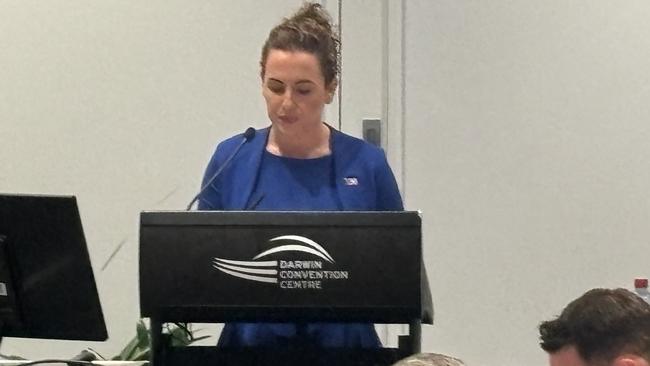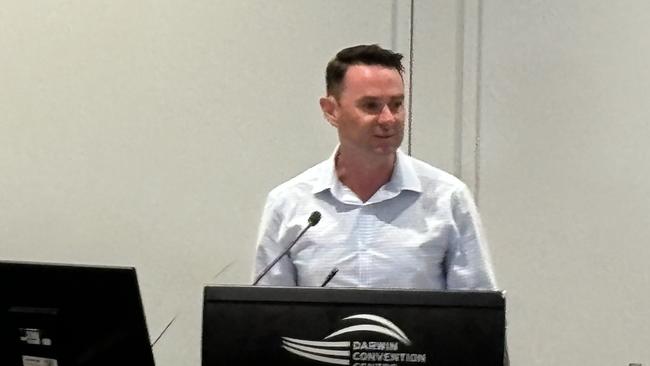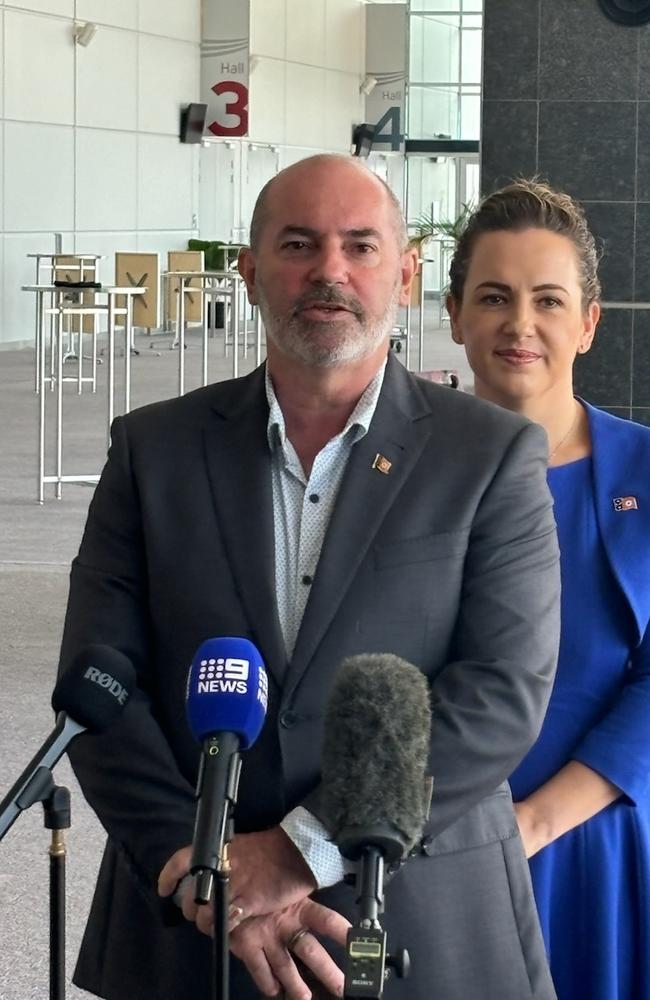The CLP Government has flagged budget cuts, but won’t say where
The Northern Territory budget is set for cuts, although the detail is yet to be revealed by the CLP. Read why they say cuts are needed.
Business
Don't miss out on the headlines from Business. Followed categories will be added to My News.
The Territory budget was on track to hit the legislated $15bn debt ceiling target within two financial years without significant economic repair and a substantial increase in own-source-revenue.
Territory Treasurer Bill Yan warned on Monday that spending promises made by the previous Labor government would be “re-prioritised” during this term of Government to cut debt, which is currently at $9bn.
At a gathering of Territory bureaucrats and business people at Darwin Convention Centre on Monday, Under Treasurer Tim McManus warned the budget was in “structural deficit” and heavily dependent on Commonwealth revenue.

He said 79 per cent of the Territory’s revenue came from the Commonwealth compared to about 44 per cent interstate, with NSW pocketing about $47bn own-source-revenue compared to just $1bn in the Territory.
Mr McManus said sustainable government spending was “a key element” supporting the economy, and pointed to the importance of a fiscal strategy that supported employment and economic development.
He said public servant wages were being paid from borrowings.
“We’ll (Treasury) be assisting government to develop a fiscal strategy that is appropriate for the Territory context and monitoring progress towards the achievement of this strategy,” Mr McManus said.
“This holds government to account and the public service and ensures that government spending and taxation policies and decisions are guided by principles that supports fiscal strategies and targets.”

Mr McManus said the Territory’s economic growth in recent years had been driven by the Barossa construction project and “a significant increase” in government spending on services and infrastructure.
He echoed the findings in the Treasurer’s Annual Financial Report which said costs in the delivery of hospital and health services as well as police and corrections had blown-out the budget.

“Private investment is a key driver of long term economic prosperity. Establishing effective policy (that attracts) private sector investment will be essential to foster sustained economic development and accelerate the Territory’s population growth while minimising government budget pressures.”
He also flagged changes or cuts to programs leftover from the previous administration.
“Programs may look and sound effective, but may have unintended consequences or simply not be driving the desired change.”
Mr Yan repeatedly highlighted Labor government “pet projects” without stating specifically what would be cut.
He said public servant jobs would not be cut.
“Where looking at how we’re re-prioritising the spending that is already there,” he said. “Labor were all about spending money on pet projects and throwing money at the latest, greatest shiny thing (and) we can’t continue to do that.
“Gone are the days of pet projects and just throwing money at one thing after another. We need to be very, very responsible.”





